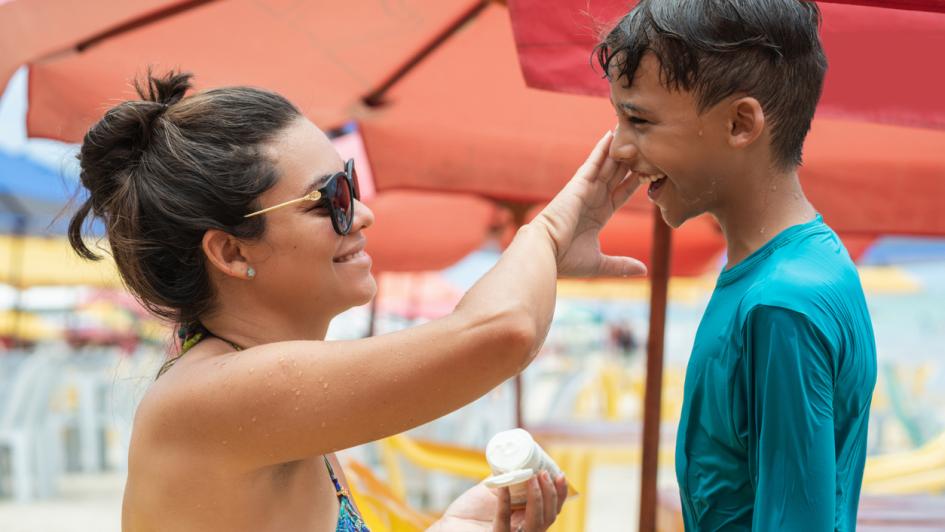How to Choose a Safer, Smarter Sunscreen This Summer

Published
July is Ultraviolet (UV) Safety Month, a great time to assess your skin protection from the sun. Sunlight has its benefits, including vitamin D, energy, and mood, but excessive exposure can increase the risk of premature aging and skin cancer, the most common type of cancer in the U.S.
A good sunscreen can help. But not all sunscreens are equal, and picking the right one can be overwhelming. Here's what to know.
What should I look for in a sunscreen?
Broad-spectrum protection is essential. This means the product guards against both UVA rays (which age the skin) and UVB rays (which burn the skin).
Zinc oxide or titanium dioxide are good bets. These mineral (also called physical) blockers are less likely to irritate sensitive skin and don’t carry the same concerns as some chemical filters.
SPF 30–50 is enough. Higher SPFs don’t offer dramatically better protection, and they can give a false sense of security. No matter the SPF, reapply every two hours—or more often if you’re sweating or in water.
Creams and sticks are often preferred over sprays. Spray sunscreens are convenient, but they can be easily underapplied and may pose inhalation risks.
To make things easier, the Environmental Working Group (EWG) evaluates sunscreens based on effectiveness and safety. You can search their database to find a product that meets your needs or see how your current one compares.
Is sunscreen enough?
It helps, but sunscreen shouldn’t be your only strategy. Here are some other steps to protect your skin:
- Wear a wide-brimmed hat and sunglasses. Look for lenses labeled “UV400” for full protection.
- Choose protective clothing. Some fabrics now list a UPF (ultraviolet protection factor) rating.
- Plan outdoor activities for early morning or late afternoon. UV rays are strongest from 10 a.m. to 4 p.m.
- Find shade when you can.
Final thoughts
Protecting your skin from sun damage doesn’t mean avoiding the outdoors altogether. But a little planning can go a long way toward reducing your long-term risk of sunburn, aging, and skin cancer.
Would you like to discuss sunscreen options or summer skin care with a naturopathic doctor? Make an appointment at Bastyr University Clinic in San Diego or Bastyr Center for Natural Health in Seattle.
Timothy Schwaiger, ND, MA
Chief Medical Director/Executive Director of Clinical Operations
Professor, Department of Naturopathic Medicine


